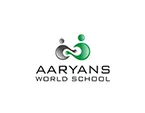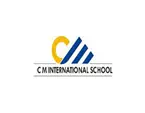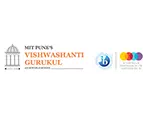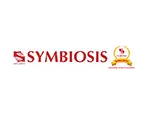Master of Education (M.Ed.)
Programme Overview
The Master of Education programme at MIT-WPU is designed to elevate students' proficiency in curriculum development and classroom management. The culmination of the programme involves the submission of a dissertation and participation in a viva, serving as valuable preparation for future doctoral pursuits. Upon graduation, students are well-prepared to embark on diverse career paths, ranging from educational leadership and policymaking to administrative roles in higher education and related fields. The Master of Education degree programme positions students as dynamic and knowledgeable contributors to the ever-evolving realm of education.
Duration & Fees
Duration
2 Years
Applications Open for 2026
Fee Per Year
₹ 65,000
Scholarship
| Scholarship for AY 2026-27 | B.Ed Aggregate Score | Graduation Aggregate Score |
|---|---|---|
|
Dr. Vishwanath Karad Scholarship |
73 & Above |
60 & Above |
|
MIT-WPU Scholarship I |
70 & Above |
60 & Above |
|
MIT-WPU Scholarship II |
65 & Above |
60 & Above |
NoteScholarships will be awarded based on the Graduation and Class B.Ed. score.
Terms & Conditions Apply:
- All Scholarships are awarded on a First Come First Serve basis. All Scholarships are awarded as fee adjustments.
- To continue the scholarship for the entire duration of the programme, a minimum level of the academic score has to be maintained at an 8 CGPA across all semesters, attendance is to be maintained at a minimum of 80 percent, with no live backlogs in any subject/programme and no semester break, and there should be no disciplinary action against the student.
For more detailed information visit our website: https://mitwpu.edu.in/scholarships
Eligibility
Minimum 50% aggregate marks in 3/4-year graduation degree in B.Ed. / B.Sc. B.Ed. / B.A. B.Ed. or D.Ed. + Graduation from a UGC-approved institution/ university or its equivalent (minimum 45% aggregate marks for candidates belonging to the Reserved Category from Maharashtra State).
Selection Process
Admission will be based on the MIT-WPU CET 2026 Entrance Examination or MAH-M.Ed.CET/PERA or any other State CET score, along with the candidate’s Personal Interaction (PI) performance and Portfolio, conducted by the University as per the prescribed schedule
Programme Highlights
- Comprehensive Pedagogy Approach: Integrates global perspectives and diverse teaching methods for next-gen educators. Includes international exposure, film analysis for critical thinking, and holistic well-being practices.
- Curricular Alignment: Adheres to National Council for Teacher Education guidelines, emphasising both theory and practical teaching, and stays up-to-date with MOOCs, content curation, and diverse resources.
- Research and Inquiry Skills: Programme often emphasise research skills, including the ability to critically evaluate educational literature, design research studies, and contribute to the advancement of educational knowledge.
- Educational Leadership Training: Programme often provide coursework in educational leadership, management, and administration to prepare educators for roles such as principals or educational supervisors.
- Field Experience and Internships: Practical experience is a key component of M.Ed. programme, typically including internships, field experiences, or teaching practices where students can apply theoretical knowledge in real-world educational settings.
- Capstone Projects or Theses: M.Ed. programme culminates in a capstone project or thesis, allowing students to showcase their mastery of the subject matter and contribute original insights to the field of education.
Career Prospects
Coordinators
Higher Secondary Teachers
Supervisors in SSC, CBSE, and ICSE Board Schools
Tuition Classes
Teachers in Academic Centres
Programme Outcomes
- Educational knowledge: Acquire the knowledge of various subjects related to education and critically analyse various theories in educational psychology, sociology, and philosophy to create an individual teaching perspective.
- Communication skills: Develop expertise in listening, speaking, reading, and writing for effective communication in the teaching learning context.
- Research Skills: Identify and select a research problem, research methods, formulate hypotheses, apply relevant tools and techniques for data collection, analysis, and interpretation through a systematic process.
- Analytical And Interpretative Skills: Analyse and interpret research data by using statistical measures, by employing latest software.
- Leadership and Management Skills: Implement the leadership and management skills with a systematic framework of understanding the school management and its different strategies.
- Entrepreneurial Skills: Know the concept of entrepreneurship and skill sets of an entrepreneur and develop skills required for the education sector, exploring different challenges of real-life situations.
- Ethics: Demonstrate the attitude to follow research ethics and recognise issues related to one’s work by avoiding unethical behavior such as fabrication, falsification or misrepresentation of data or committing plagiarism or not adhering to intellectual property rights and adopting fair/unbiased practices in profession.
- Use of Technology: Apply modern ICT tools and techniques for administrative purposes and follow the latest trends in ICT for research and innovation.
- Teamwork: Demonstrate the attitude to function effectively as an individual, or a team leader in diverse groups, and in multidisciplinary settings by performing activities successfully in research collaboration.
- Life-long Learning: Recognise the need for and have the preparation and ability to engage in independent and lifelong learning in the broadest context of technological/pedagogical change.
Placements & Recruiters
100% Placement Assistance
Top Recruiters
FAQs
The programme includes core subjects in educational theory, pedagogy, curriculum development, research methods, and electives in specialised areas.
Yes, many programmes offer specialisations such as Curriculum Studies, Educational Leadership, Assessment, or Inclusive Education, allowing students to focus on their area of interest.
You will enhance your skills in educational research, curriculum development, leadership, critical thinking, communication, assessment, and educational technology.














 admissions@mitwpu.edu.in
admissions@mitwpu.edu.in